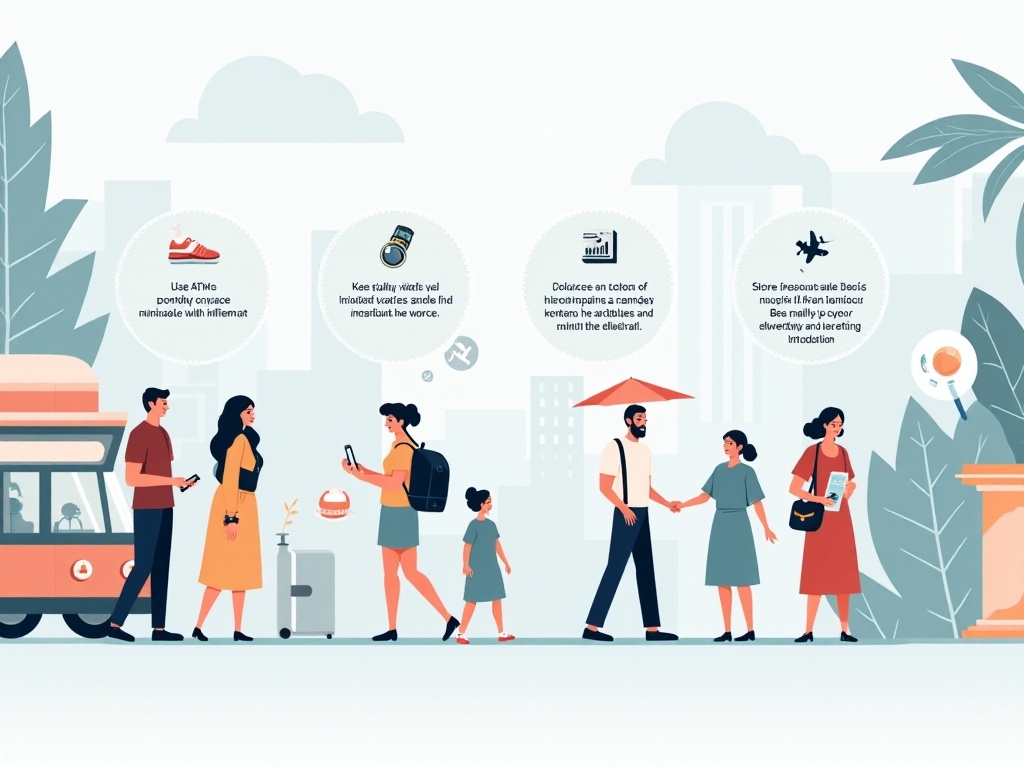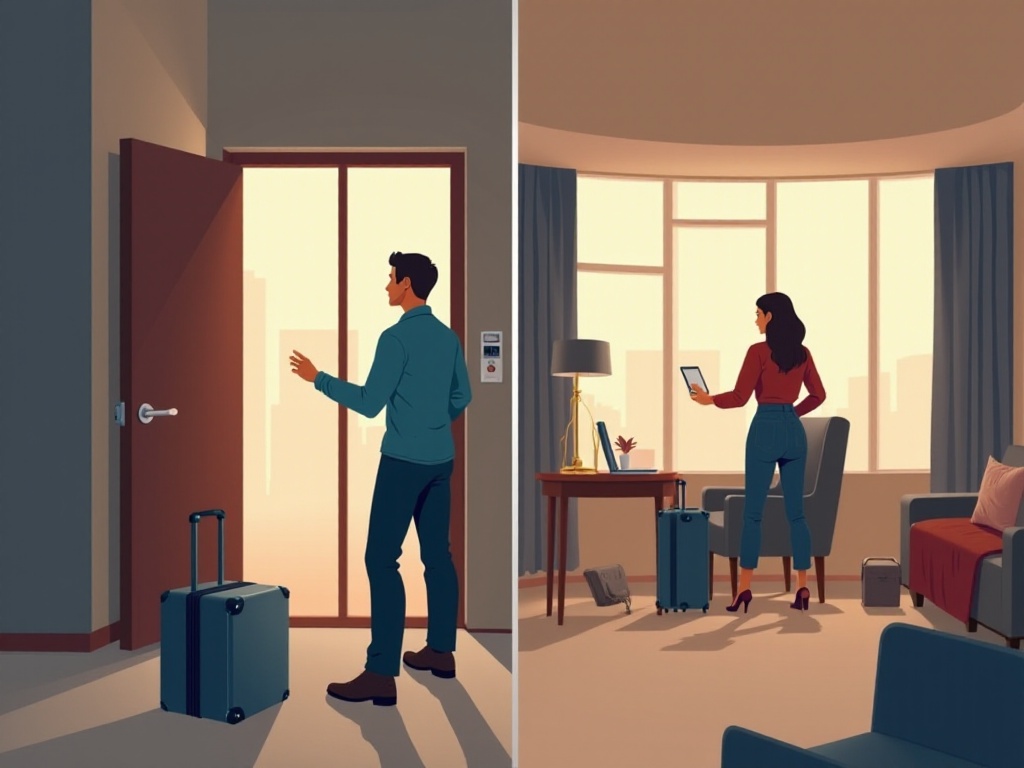
Before Departure
As a fresh graduate who just started working, I finally gathered the courage to embark on my first long-term journey - a three-month study tour in Europe. While this experience exposed me to many fascinating things, before sharing those exciting stories, I feel it's necessary to discuss my safety-related experiences first. After all, without feeling secure, you won't even feel like taking photos for social media, right?
Accommodation Arrangements
Regarding accommodation, I was extremely meticulous. When I first started planning my trip, I naively thought booking hotels or Airbnbs would be simple, but when I actually started looking for places to stay, I discovered there was so much more to consider!
I remember once in Paris, my accommodation booking was canceled due to a flight delay. That night was a nightmare: I was stuck at Charles de Gaulle Airport until 2 AM, called dozens of hotels, and finally had to spend 300 euros on a hotel near the airport that didn't even have a 7-star rating. After that, I became extremely cautious and always made sure to book accommodations at least two weeks in advance.
For choosing accommodations, I developed a "three-check" standard. First, check the rating: it must be above 8.5, and I carefully read the latest 20 reviews, paying special attention to comments about safety and hygiene. Once, I immediately canceled a booking after seeing a review mentioning that the host would suddenly appear in the room at night.
Second, check the location: it must be in the city center or somewhere with convenient transportation. I learned this lesson the hard way in Milan when I booked a place in the suburbs to save money. I had to walk through a particularly creepy path every night with flickering streetlights, which terrified me. After that, I preferred spending more money to stay in busy, safe areas.
Third, check the facilities: make sure the room has a safe and door locks. In Rome, I encountered an Airbnb where the room's lock was broken! When I reported it to the host, they said it was common in Rome, so I immediately checked out and booked elsewhere. Although I lost one day's payment, safety was more important.
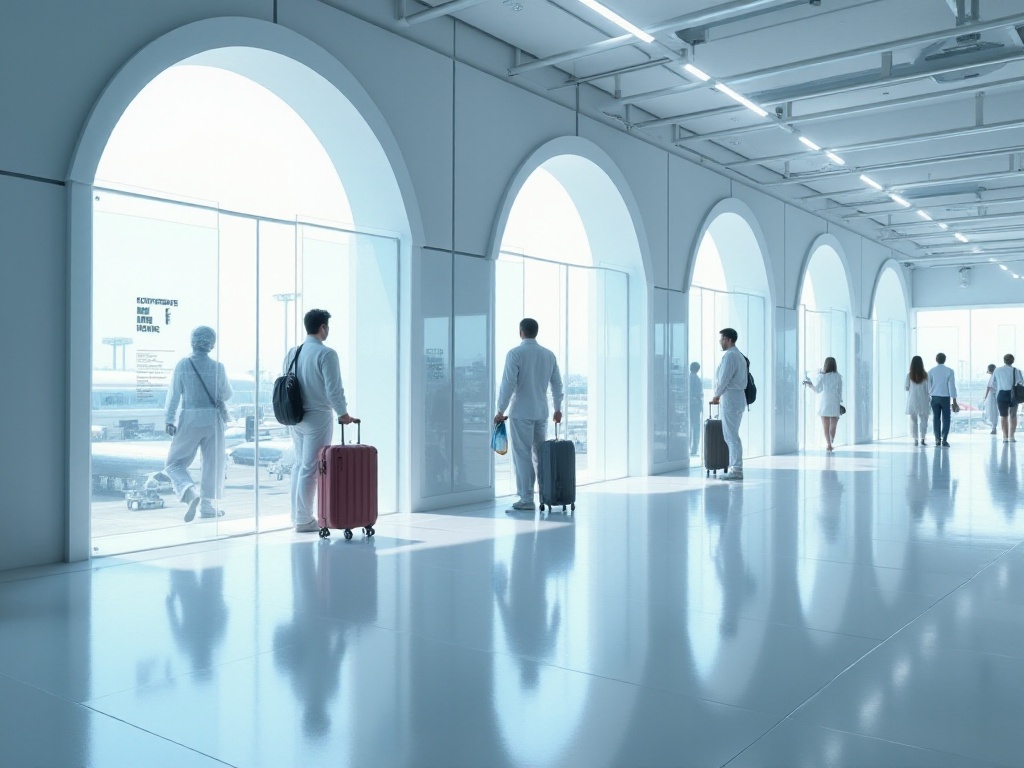
Document Preparation
Regarding document preparation, I learned these lessons through blood and tears. During my first visit to Amsterdam, I carried my original passport in my backpack everywhere. One day while visiting the Van Gogh Museum, I almost had my bag stolen by a "professional" thief. If it weren't for a kind local elderly man's timely warning, I might still be in the Netherlands applying for a new passport.
After that, I established a strict document management system: I keep the original passport in an anti-theft pouch, which I bought specifically from Decathlon. It can be worn at the waist and is completely invisible under loose clothing. I prepare three copies of my passport: one in my suitcase, one in my day bag, and one at my accommodation.
I also thoroughly prepared digital versions of my documents: not only did I save photos of all documents on my phone, but I also bought cloud storage space for backup. I used to think this was overkill until I met a Chinese girl in Brussels who had her phone stolen and couldn't find any of her document photos. She had to seek help from the embassy, which delayed her trip by three whole days.
I also carry copies of visa materials with me. At a Paris metro station, I encountered police randomly checking documents. While they accepted passport copies, they were particularly strict about visas. A Russian tourist who didn't have a visa copy was taken to the police station for questioning, which wasted half a day.
Additionally, I prepared a special document organizer containing not only my passport and visa but also insurance policies, emergency contact information, and embassy contact details. This small package is kept in the most concealed compartment of my suitcase. While rarely needed, it can be incredibly useful in critical moments.
During Travel
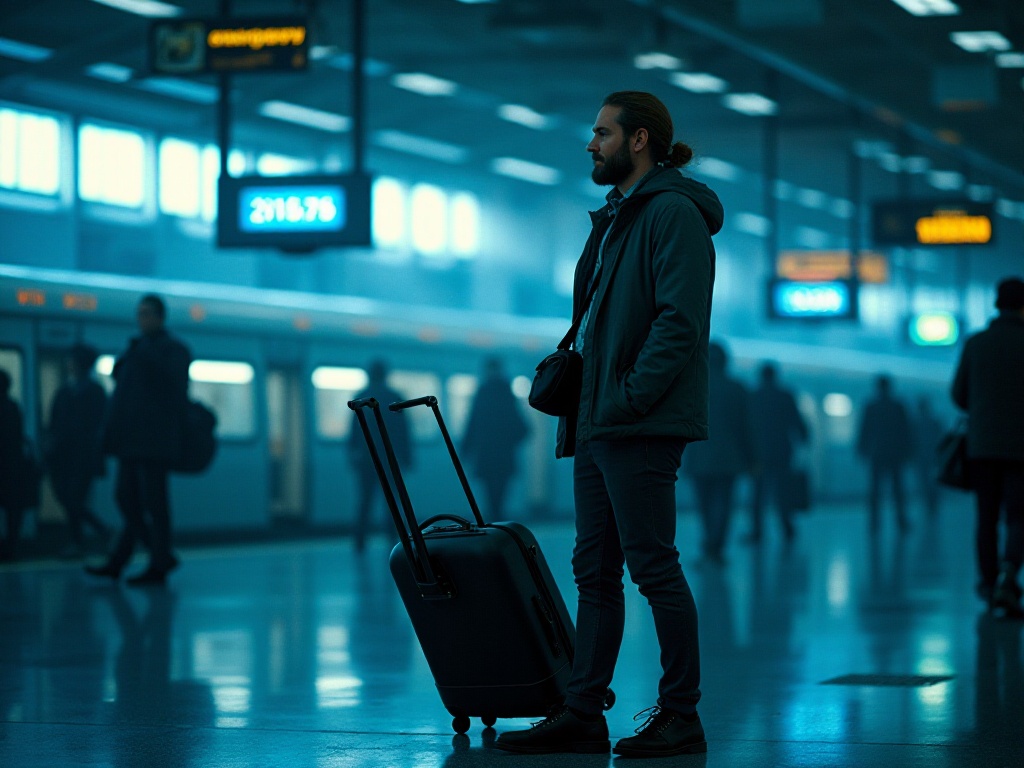
Accommodation Safety
Regarding accommodation safety, I could talk all day just about checking door locks. When staying at an Airbnb in Rome, the host gave me an old-style key that required a special technique to open the door. It took me a full half hour to master the trick: turn left twice, then forcefully turn right while lifting the handle. This experience taught me how important safety checks are after checking in.
At each new accommodation, I conduct a comprehensive safety check. First, I verify that all doors and windows can open and close properly, especially balcony doors - they must be lockable from the inside. Once in Venice, I discovered the balcony door lock was broken, with a small plaza right below, which kept me anxious all night. I contacted the host first thing in the morning and changed rooms.
Second, I check the emergency exits. I specifically walk the route from my room to the emergency exit, memorizing key corners and stairs. At a hostel in Barcelona, because I had familiarized myself with the escape route beforehand, I was able to calmly lead my roommates to safety when a fire alarm went off in the middle of the night.
Third, I check the room's safety facilities. I verify that the smoke detector is working properly, the safe functions correctly, and whether there's a portable door lock. I brought this door lock from China - once inserted, the door can't be opened from outside, which makes me feel particularly secure at night.
Most importantly, don't easily trust strangers. Once in Prague, a guest from the next room claimed to be the host's friend and wanted to use my WiFi. I politely declined, and later learned this was a common scam: criminals use shared WiFi to steal personal information.
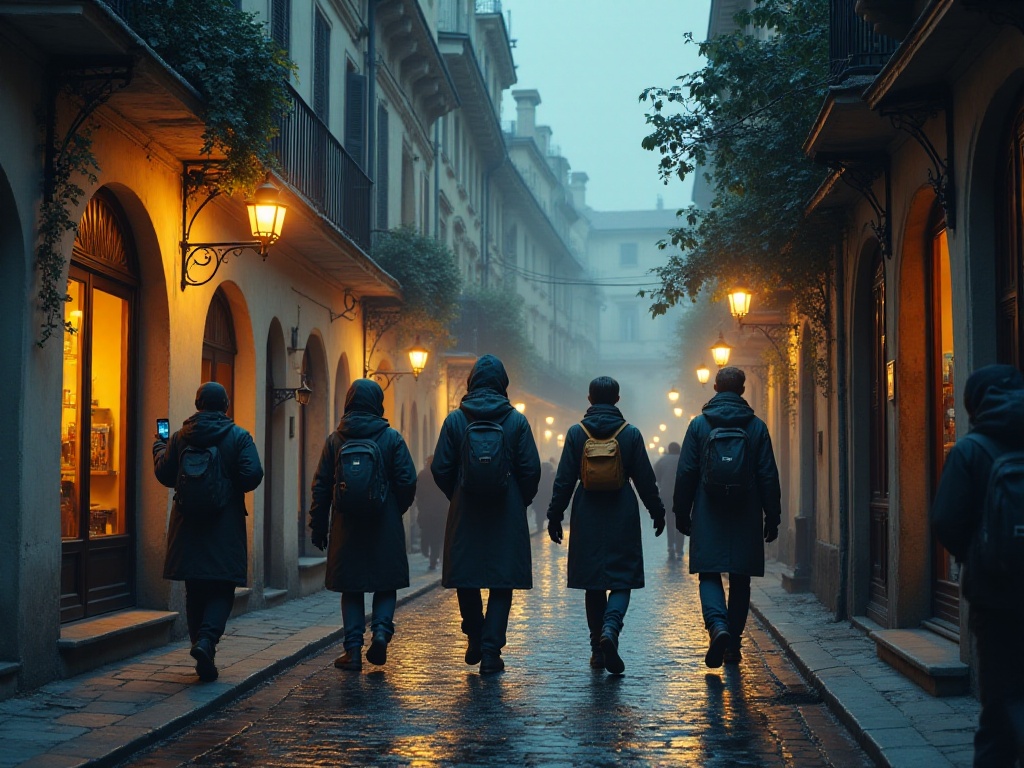
Financial Safety
Managing money is particularly important when traveling in Europe. I use a "three-layer distribution" strategy: The first layer is cash carried on me, usually not exceeding 100 euros, kept in my front pocket for daily small expenses; the second layer is backup cash in my anti-theft pouch, about 300 euros, for unexpected situations; the third layer is emergency funds kept in the safe, approximately 500 euros.
Credit card management is also crucial. I prepared three credit cards from different banks: one primary card kept in the safe; one secondary card carried for daily use; and one emergency card hidden in a secret compartment of my suitcase. In London, my secondary card was swallowed by an ATM, but having the emergency card on hand prevented any disruption to my trip.
Choosing luggage is also particular. I specifically bought a German brand hard-shell suitcase with a TSA lock, in blue. Why blue? Because it's easily recognizable on the baggage carousel and less likely to be taken by mistake. At Munich airport, I saw a girl whose black suitcase was so common it was taken by someone else, and it took a long time to find it.
Organizing items in the suitcase is also methodical. Valuables must be placed in the innermost layer, wrapped in clothes. I hide cash and document packages inside socks or underwear, as thieves generally won't go through these personal items. Also, don't pack the suitcase too full; leave space for souvenirs. I've seen people whose suitcase zippers burst open because they were too full, scattering items everywhere.

Personal Safety
The most important aspect of personal safety is maintaining high vigilance. On Las Ramblas in Barcelona, I've seen too many cases of theft due to carelessness. I remember a student wearing AirPods while walking and looking at their phone, only to have it snatched by thieves on a motorcycle. Since then, I only wear one earbud when walking and keep my phone close to my chest.
Dressing should also be understated. Don't wear conspicuous jewelry, and it's better to switch designer bags for ordinary styles. In the Paris metro, I witnessed a Korean tourist wearing an expensive watch being surrounded by a gang of thieves. Although it ended without incident, such experiences are truly frightening.
Night travel requires extra caution. I always plan my route back to accommodation in advance, trying to stick to well-lit main roads with surveillance cameras. In Amsterdam, I almost walked into an alley until a local warned me that drunk people often cause trouble there.
Social safety is also important. While it's normal to meet new friends while traveling, maintaining basic safety awareness is crucial. Don't easily accept food or drinks from strangers, and don't casually visit strangers' homes. In Budapest, I heard about people being drugged in bars, so I only order bottled drinks and watch the server open them.
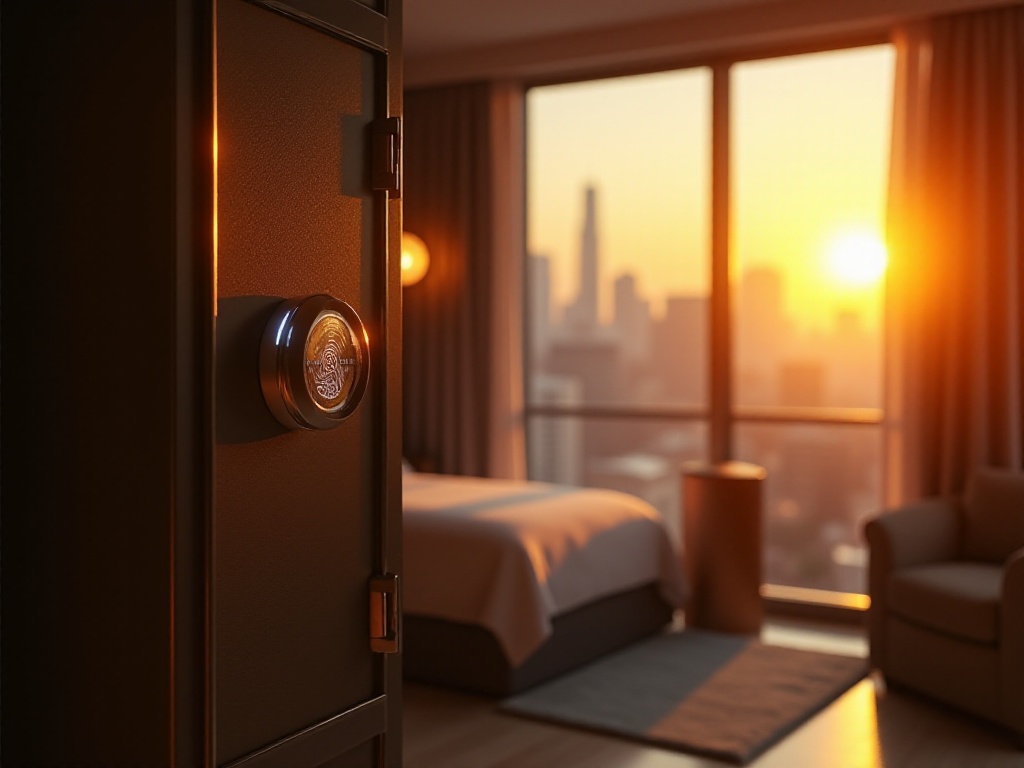
Summary of Experiences
These three months in Europe taught me that travel safety doesn't depend on luck but on caution and preparation. Many seemingly troublesome preparations can prove useful in critical moments. Like when I encountered an emergency in Vienna, it was thorough preparation that allowed me to handle it calmly.
Whenever I see friends sharing stories of being robbed while traveling, I feel deeply moved. Actually, most risks can be avoided with basic safety precautions. Like during my trip, although I encountered some minor situations, none evolved into major problems.
Finally, I want to say that good safety preparation isn't about limiting yourself but about better enjoying your travel. Like watching the sunset at the Eiffel Tower, riding a gondola in Venice, listening to street performers in Prague Square - these beautiful memories are all built on a foundation of security.
Being well-prepared doesn't mean being overly anxious, and staying relaxed doesn't mean being careless. I hope every traveler can, like me, see the world's beauty while returning home safely.
By the way, if you're also planning to travel to Europe, feel free to share experiences in the comments. Maybe I've experienced the problems you might encounter? Let's share and grow together, becoming happy and safe travelers.
Next
Essential Safety Guide for Solo Female Travelers in 2024: From Hotel Booking to Scam Prevention
A comprehensive guide covering travel safety aspects including accommodation security, personal belongings protection, and behavioral safety. Provides practical advice on lodging preparation, valuables management, document security, and scam prevention for travelers
Safety Guide for Solo Female Travelers Abroad: A Veteran Travel Blogger's 10 Years of Experience
A comprehensive travel safety guide covering pre-trip preparation, personal security, accommodation safety, and emergency readiness. Offers practical safety advice and best practices for travelers, from accommodation planning to fraud prevention
First Time Traveling to Japan Alone? Don't Miss These Essential Preparations! A Comprehensive Guide
A comprehensive guide covering essential travel safety preparations, including document management, luggage security, accommodation safety, and personal property protection, helping travelers minimize risks during their journey.
Next
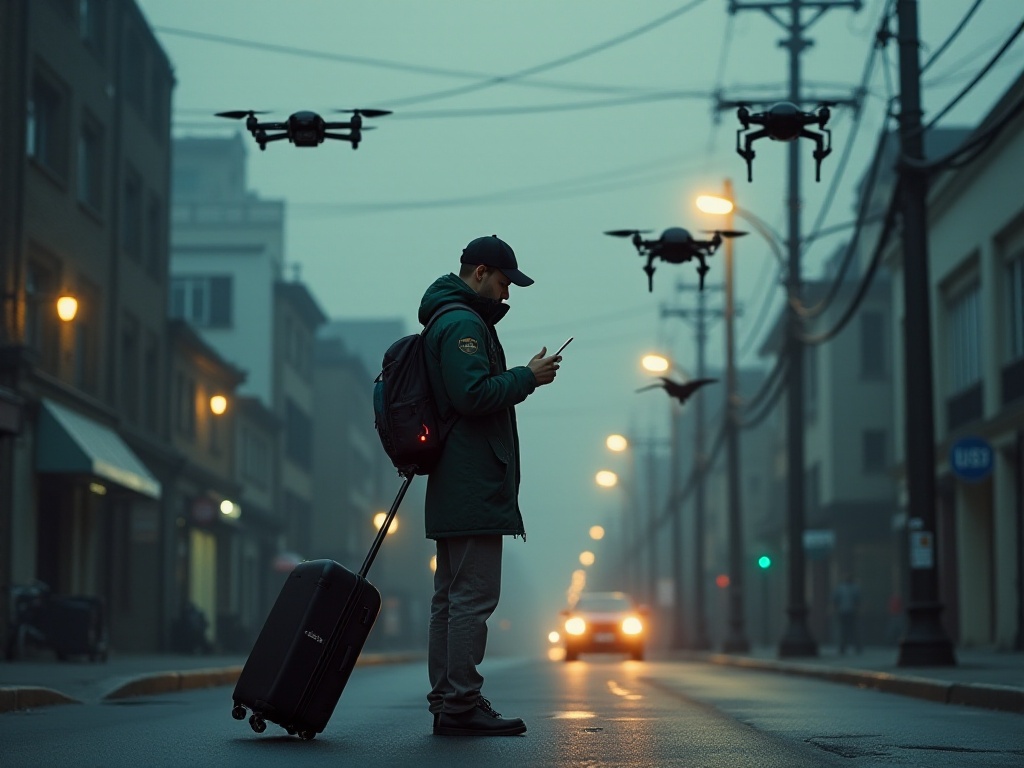
Essential Safety Guide for Solo Female Travelers in 2024: From Hotel Booking to Scam Prevention
A comprehensive guide covering travel safety aspects including accommodation security, personal belongings protection, and behavioral safety. Provides practical advice on lodging preparation, valuables management, document security, and scam prevention for travelers
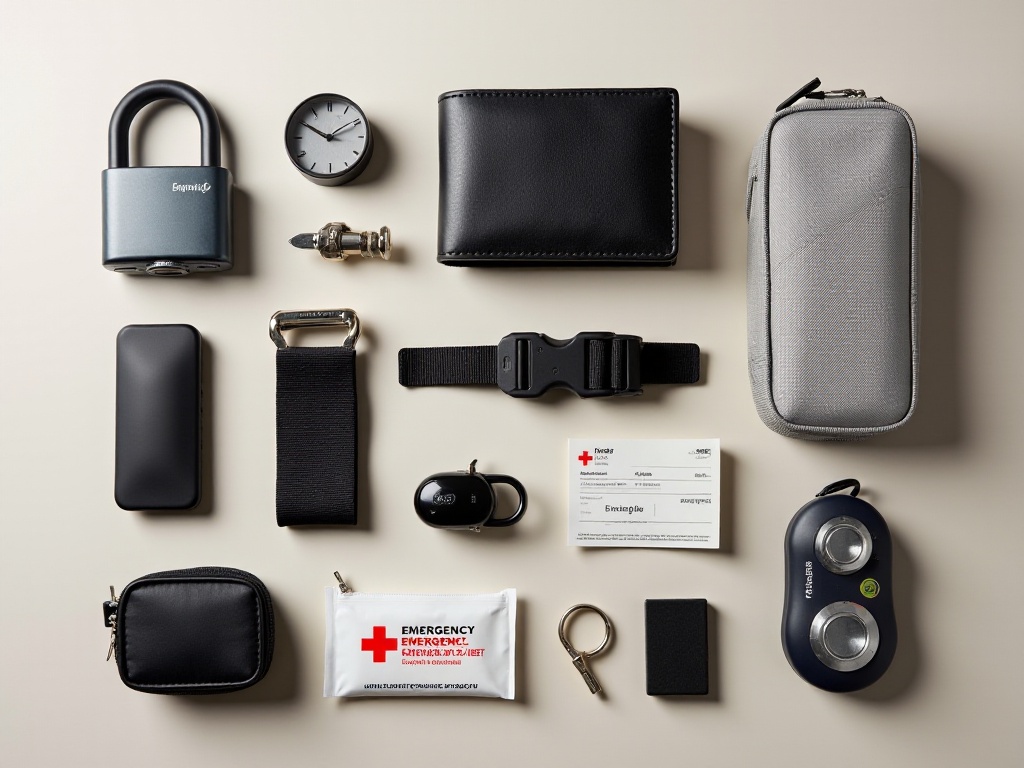
Safety Guide for Solo Female Travelers Abroad: A Veteran Travel Blogger's 10 Years of Experience
A comprehensive travel safety guide covering pre-trip preparation, personal security, accommodation safety, and emergency readiness. Offers practical safety advice and best practices for travelers, from accommodation planning to fraud prevention
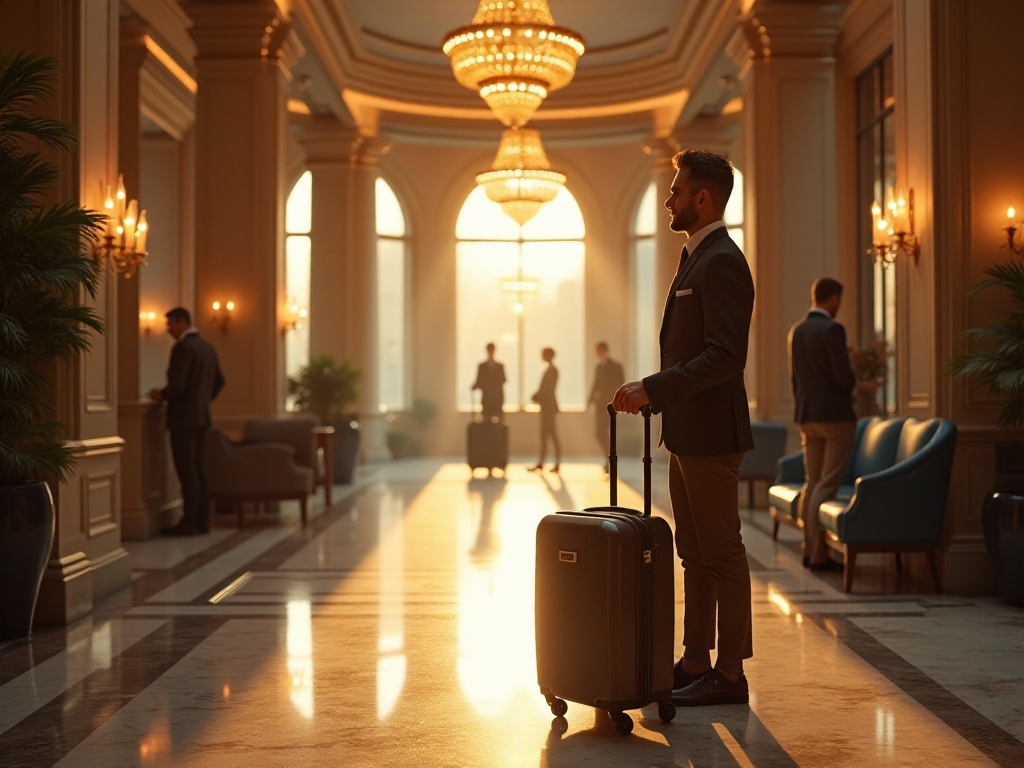
First Time Traveling to Japan Alone? Don't Miss These Essential Preparations! A Comprehensive Guide
A comprehensive guide covering essential travel safety preparations, including document management, luggage security, accommodation safety, and personal property protection, helping travelers minimize risks during their journey.

